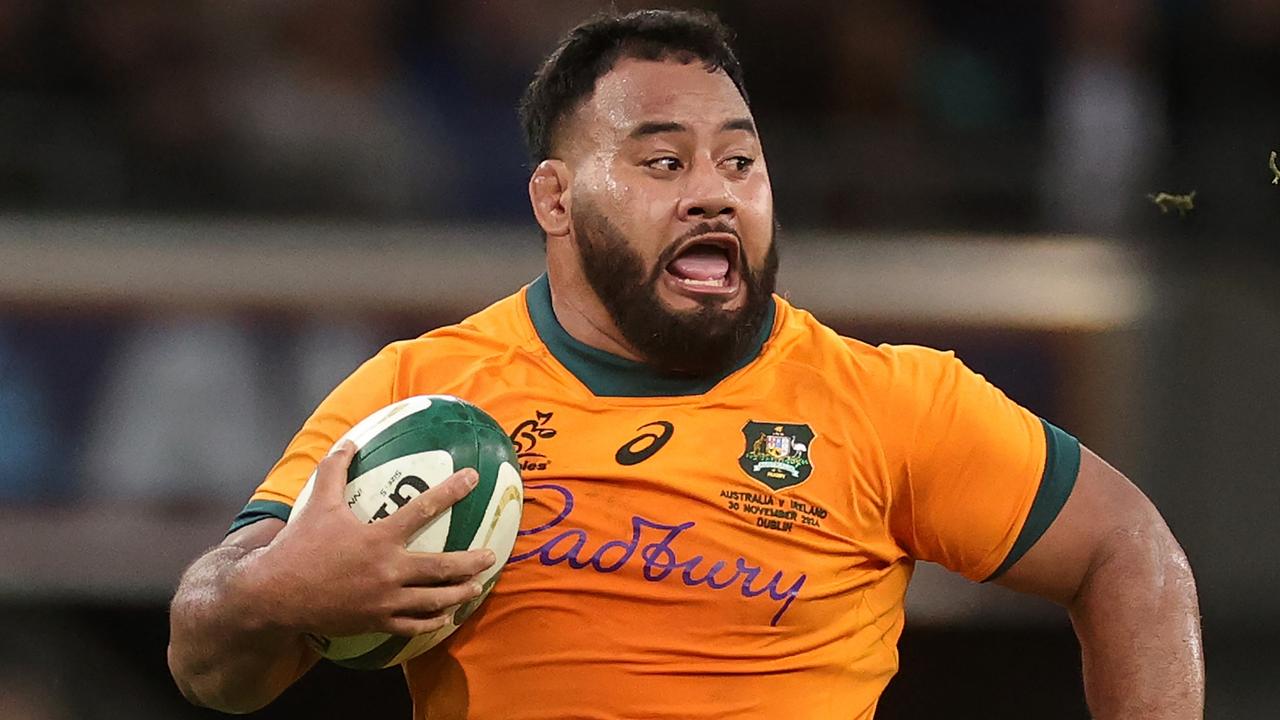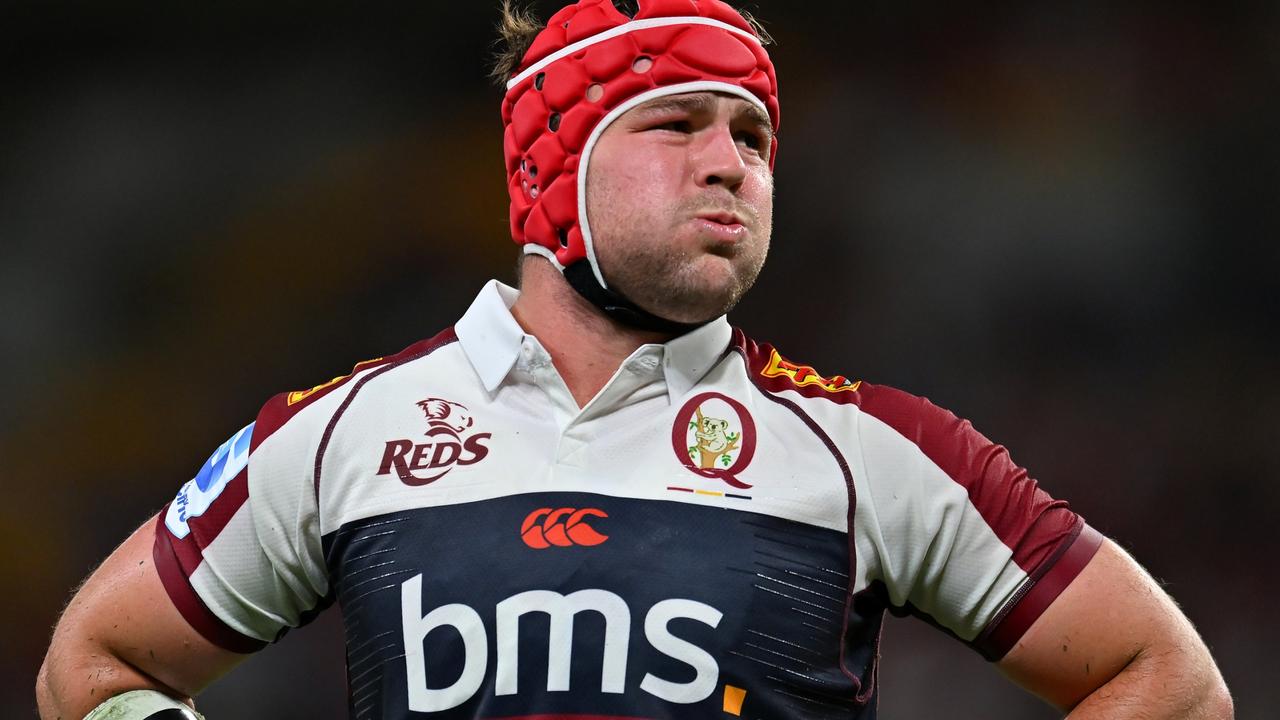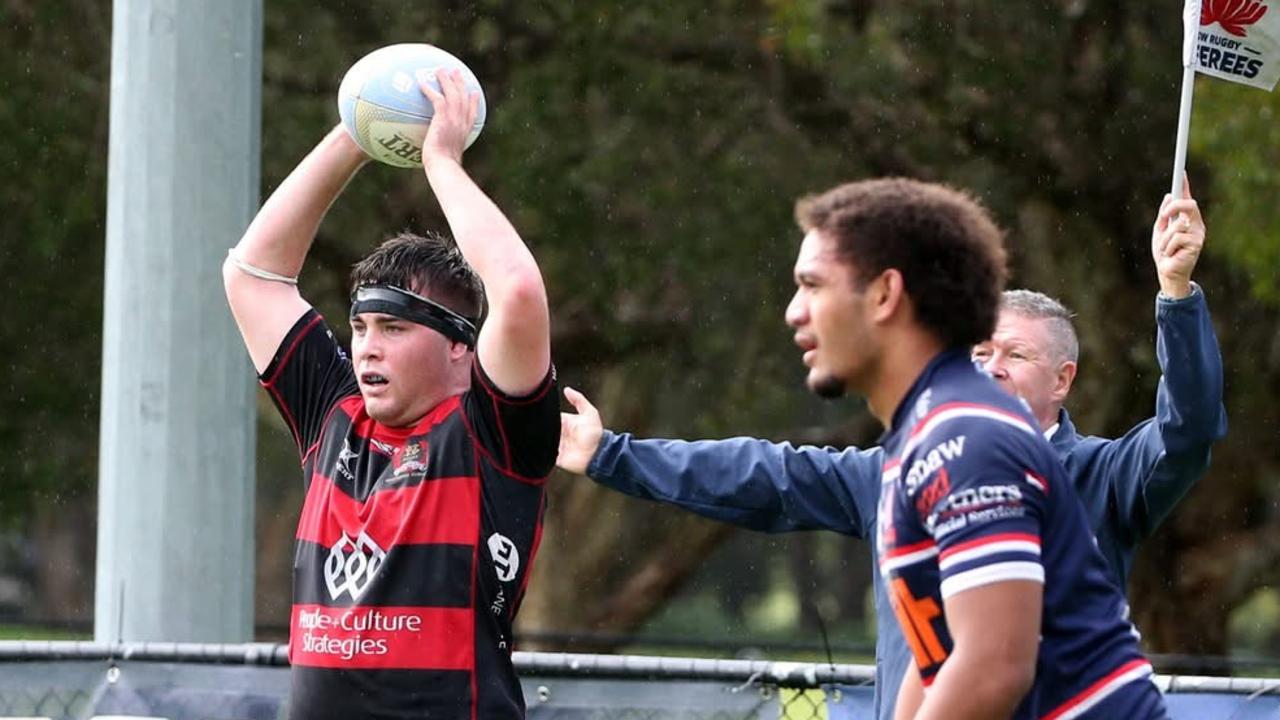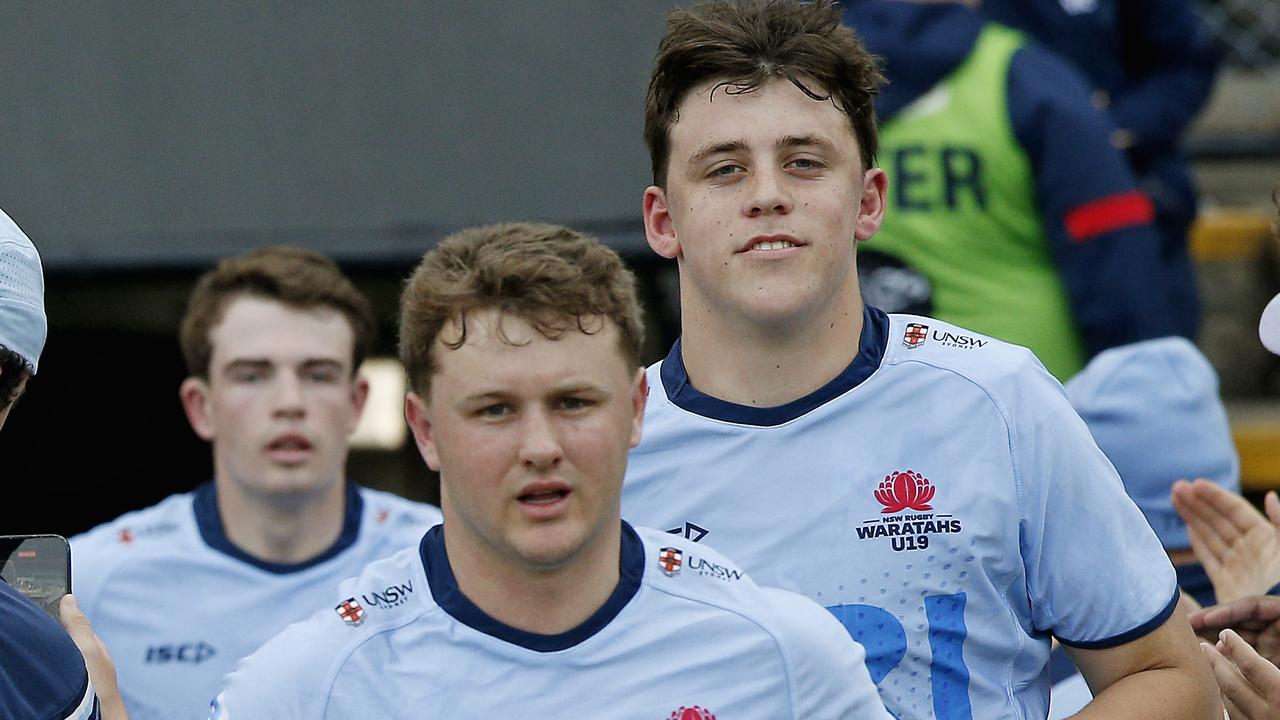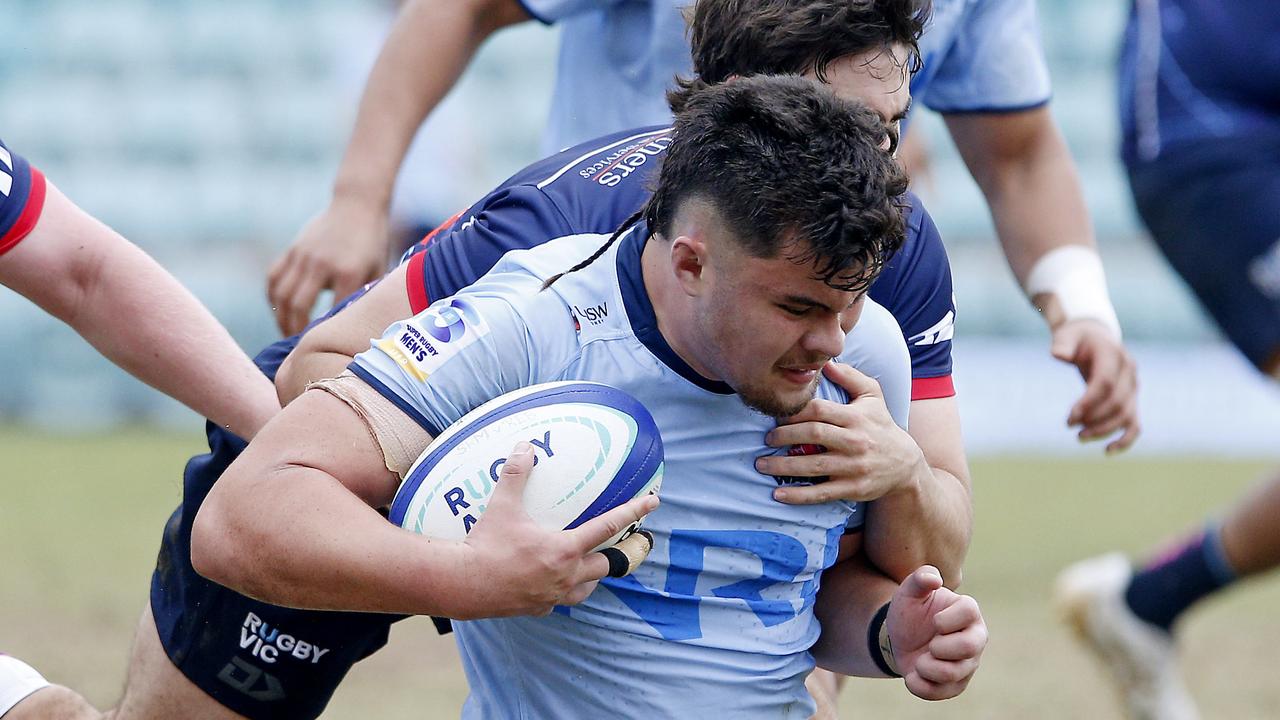World Rugby Chair Brett Robinson reveals plan to reunite the sport and fix Australia’s woes
In an exclusive interview, former Wallaby and newly appointed World Rugby Chair Brett Robinson details his vision for the game, and explains why things are suddenly looking brighter for Australia.
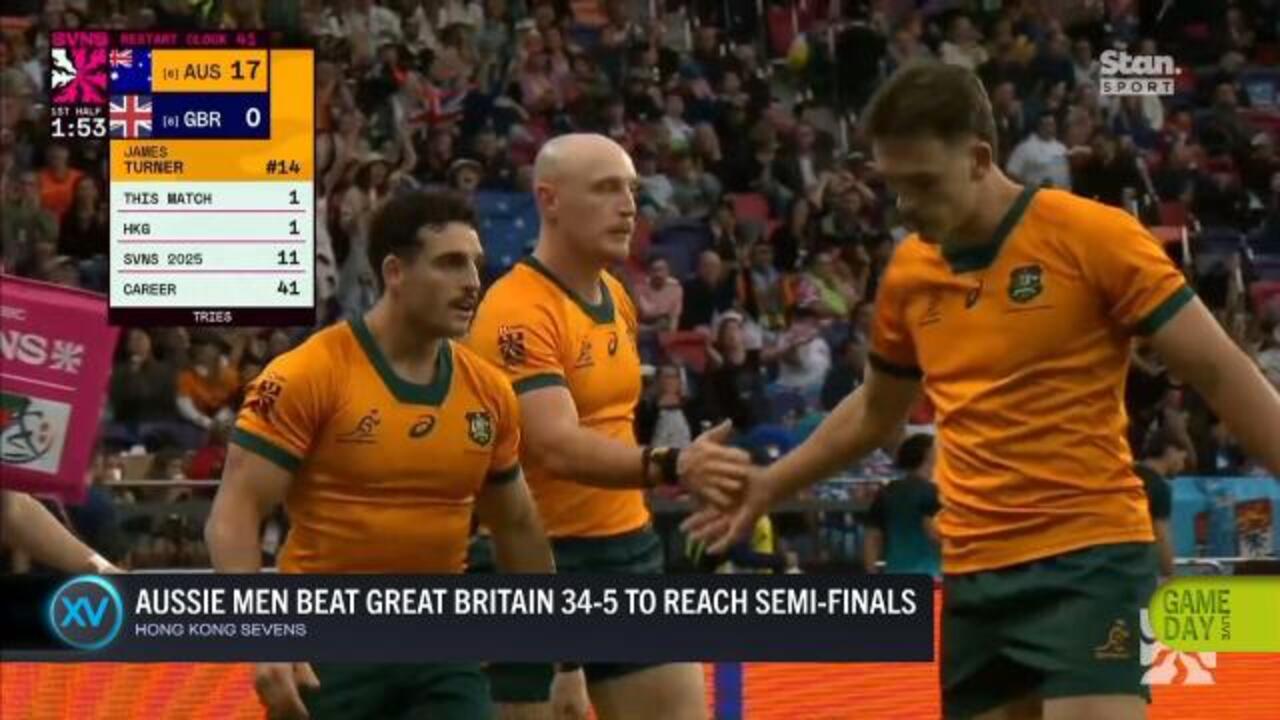
Rugby
Don't miss out on the headlines from Rugby. Followed categories will be added to My News.
The politics of international rugby have never worked in Australia’s favour.
Despite being one of the sport’s most powerful nations on the field, winning two men’s Rugby World Cups, Australia has never held much sway in the boardroom because the game has always been run by Europe’s rich powerbrokers.
But that all changed last year when Brett Robinson, the former Wallaby, was elected as World Rugby chair, becoming the first person from the southern hemisphere to ascend to the most powerful job in the global game.
As an Aussie, Robinson is right across the unique challenges the code faces at home and now he has the chance to fix them.
In a rare and exclusive interview with this masthead at the Hong Kong Sevens, he revealed his goal of not only reuniting the world game but also looking after Australia’s interests.
“The game became a bit disconnected in the last six or twelve months as the election loomed and people were positioning (themselves) through the politics,” Robinson said.
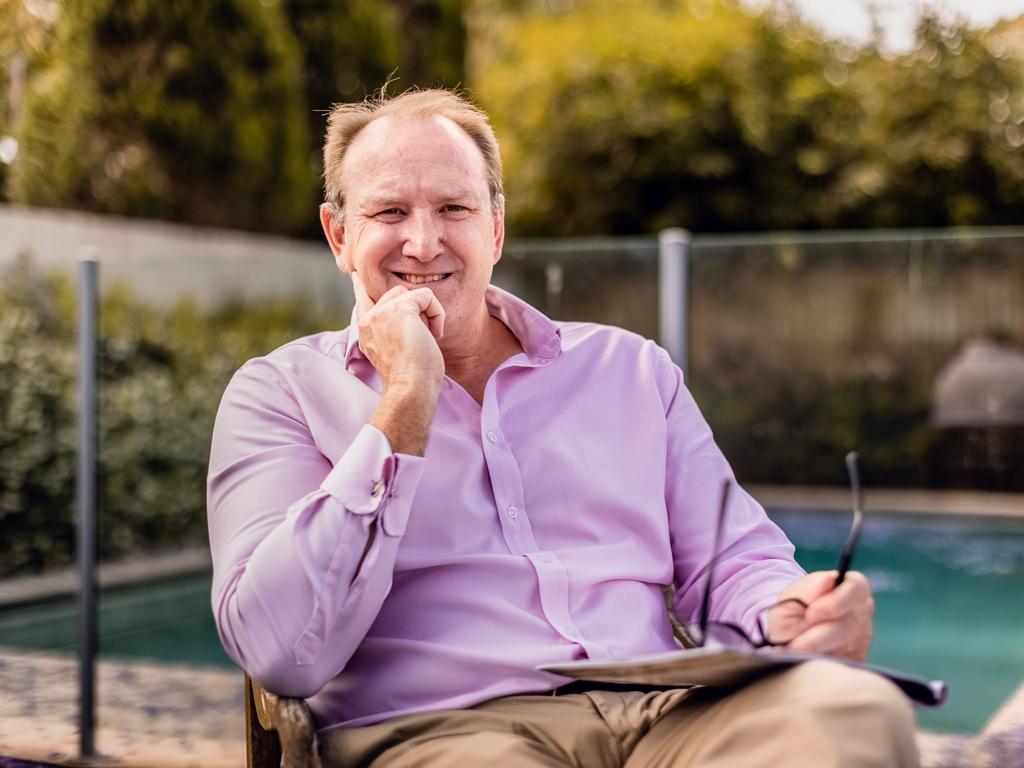
“But I think now the politics is behind us. Fortunately, rugby’s values are at the core of the game and so I’m watching people come together and there is a real willingness and I think a desire for leadership and also connection.”
While rugby is absolutely booming on the global stage, attracting record crowds and record financial deals, there’s no sugar-coating the problems rugby faces in Australia, where the game is locked in a constant with the other footy codes, rugby league, AFL and soccer.
Robinson knows that and while fixing Australia’s issues isn’t his only chore, he’s made it a priority and believes things are already trending in the right direction.
“I actually think the game is in a really good place,” he said.
“(Wallabies coach Joe Schmidt) has made a huge impact on the confidence of the Wallaby members and those guys.
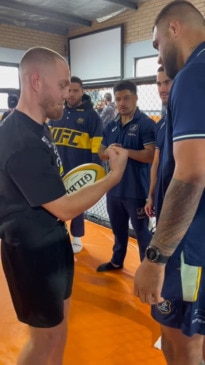
“You can see in the Super Teams. As horrible as it always is to see a team missing from Super Rugby to come on to four teams, now we’ve seen a quality of concentration and talent.
“We’ve got really good coaches that are driving competitive performances, all our teams are in the top six in the log. The Kiwi’s are hating it, but I think broadly, that part of our game is in really good shape.
“We’ve got a Lions tour coming. Everyone’s death-riding Australia up in the North but we all are quietly confident that they’re going to be very, very competitive.”
While things are starting to improve on the field, the gains taking place off the pitch are arguably more important to the future of the game.
In financial strife after Covid, Rugby Australia’s balance sheet is already looking healthier with the British and Irish Lions touring later this year, Australia hosting the Rugby World Cup in 2027 and the sport launching a new, lucrative Nations Cup tournament that will kick off in 2026.
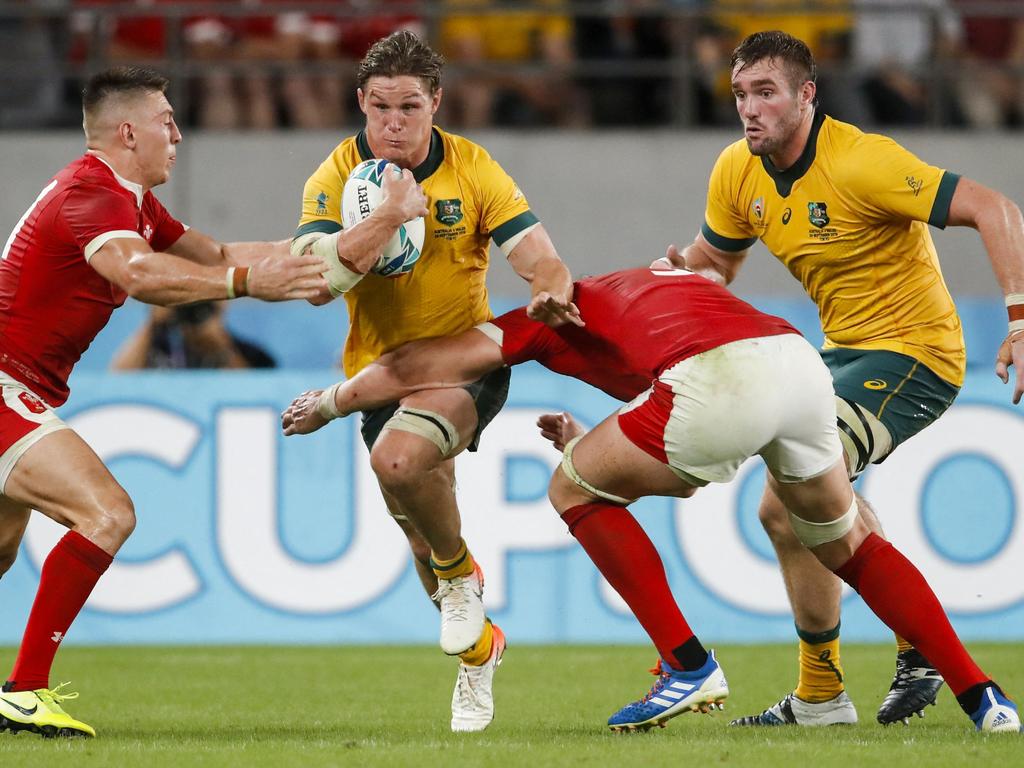
“You can feel the energy in the country coming with the Lions’ ticket sales,” he said.
“And we’re going to have a monster World Cup in Australia. We absolutely are.
“We’re going to a Nations Championship with the best 24 teams that are going to be picked.
“Australia is one of the great sporting countries. We have some of the best stadiums in the world and people will pour into our country.
“So I’m very, very excited and motivated about the game and I’m going to do all I can as World Rugby Chair to promote that within our country.”
Since taking over as chair four months ago, Robinson has been as busy as when he was playing in the backrow for the Wallabies, and has already had one-on-one meetings with 24 different national unions, including Australia.
It was no coincidence that World Rugby’s first board meeting since he became chair was held in Australia, in January, while the next will take place in Hong Kong this week, and is looming as pivotal in deciding the future of the game worldwide.
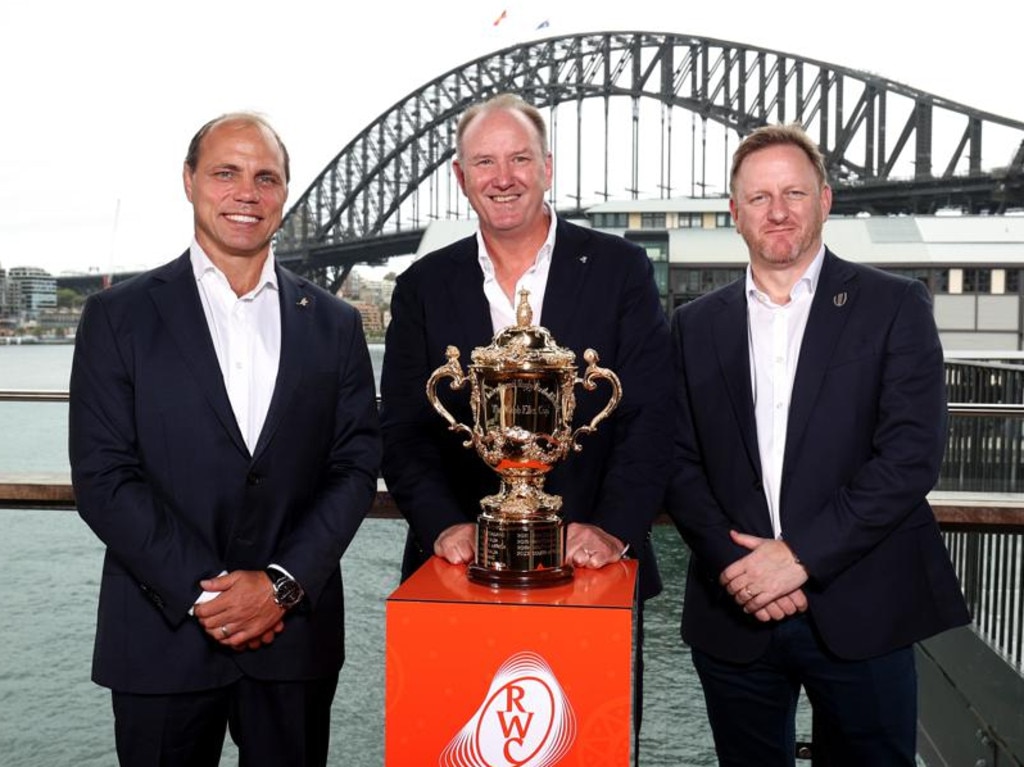
One of his biggest goals is to make the game a better spectacle after ongoing complaints about stoppages and baffling laws.
“We are doing all we can to make it better and more attractive, so less kicking, more ball in play time, promoting teams to have the confidence to play with the football, less senseless kicking,” he said.
“We’re getting some real traction with some of those changes, particularly when you look at the data about ball in play time stoppages. Super Rugby this year has been fabulous ... really close competitive games, high scoring, fatigue.
“And the Six Nations as well was a cracking tournament. So I guess the indicators of some of that work have been really quite positive.”
Despite some of the negativity in his homeland, Robinson believes the code in Australia is on the verge of another golden era.
“Our competitive advantage in the Australian marketplace is that we are truly an international sport,” he said.
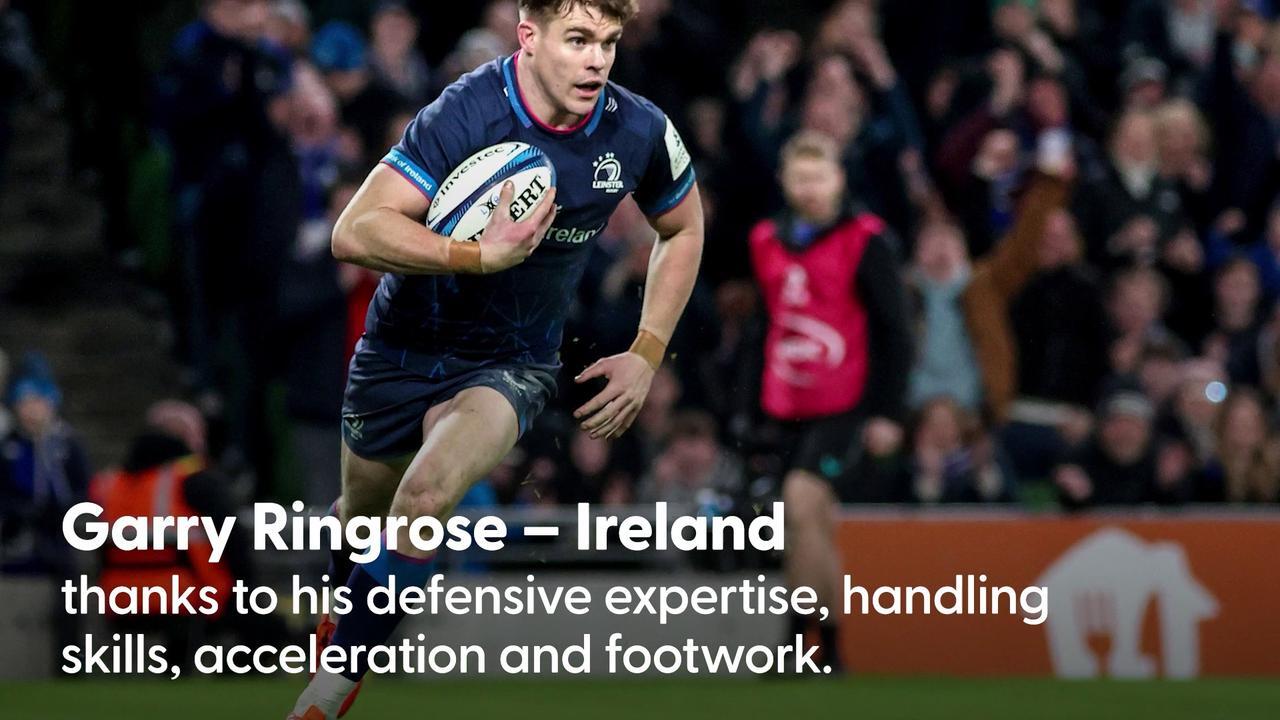
“You look at the scale of Rugby World Cups in Australia, you look at the scale at the Lions Tour, you look at an Olympics program in Paris last year and look at what we’re doing around looking after our players, safety and welfare.
“We’ve made some real progress. It’s not perfect, but I think we made some progress around the product, the shape of the game, and the mood.
“If you look at our global competitions, that’s the other big piece, we’re trying to create more revenue opportunities, market opportunities, meaningful competitions, and the Nations Championship has been long in gestation.
“But we’re finally there, and we are right in the final throes of the tier one nations finalising what that looks like.
“The women’s game is an engine room for growth, but it needs net investment and the Sevens game is another program for growth which is critical for the growth of the game in emerging markets.”
More Coverage
Originally published as World Rugby Chair Brett Robinson reveals plan to reunite the sport and fix Australia’s woes




